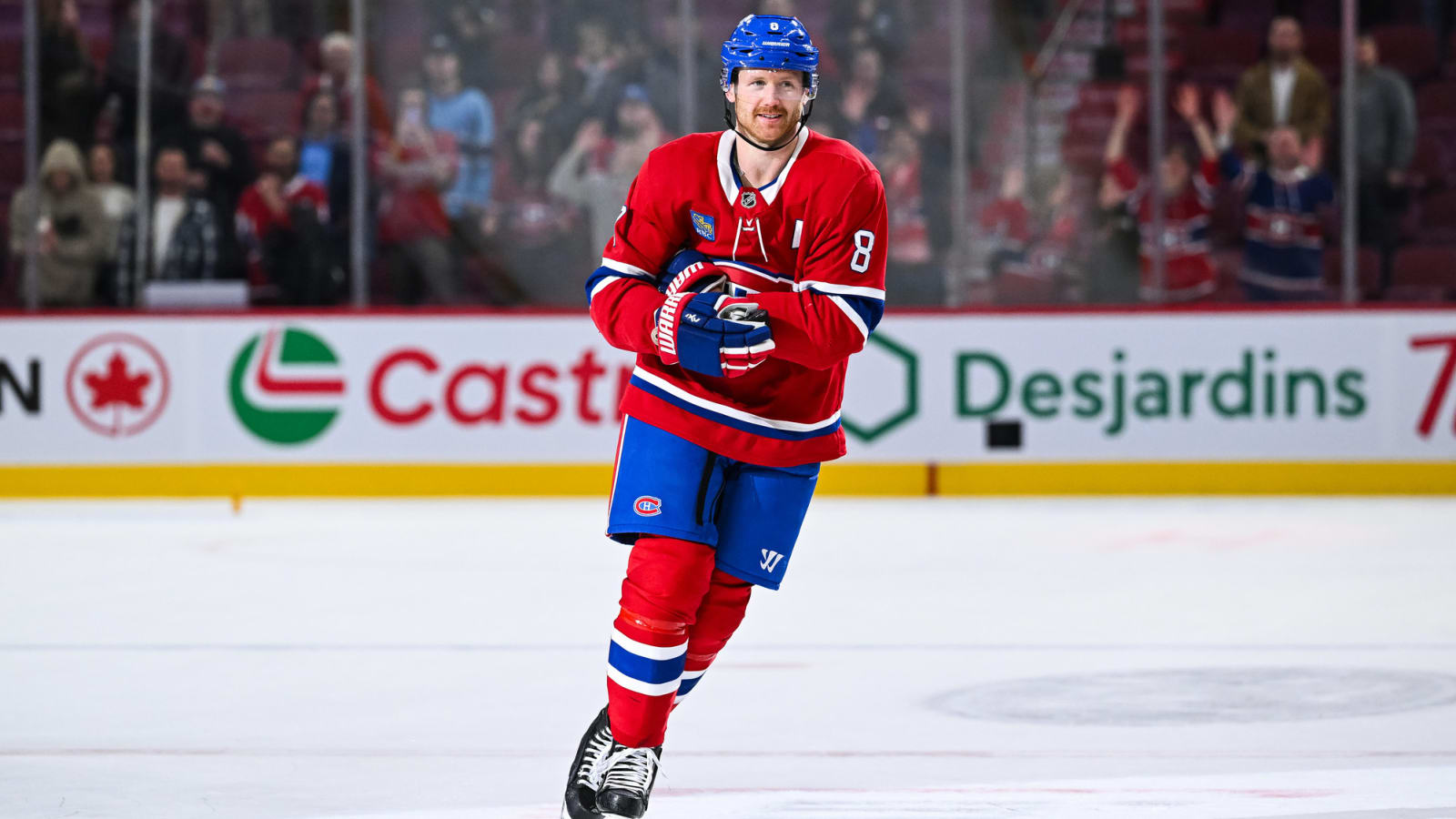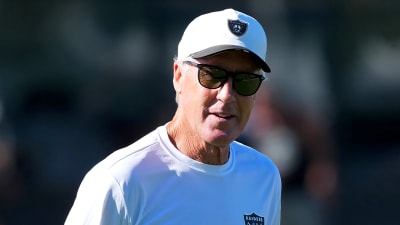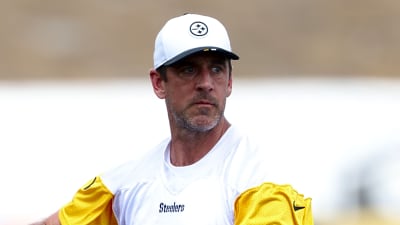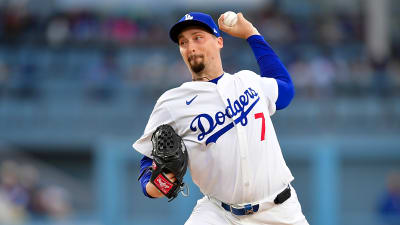
Even though the NHL’s Trade Deadline is months away, scheduled for March 7, 2025, it’s never too early to start discussing potential trades for various players, including Montreal Canadiens defenceman Mike Matheson.
Daily Faceoff published their most recent Trade Target list, with Matheson listed as the 13th player who could garner interest on the NHL’s trade market, and while many will suggest that’s a trade that must be made, we would be foolish to ignore Matheson’s impact. We also have to recognize these lists aren’t always very accurate, and that a name appearing as a trade target is far from a guarantee they will be moved.
With that in mind, let’s discuss the potential impact of trading Matheson between now and the NHL’s Trade Deadline.
Seller Beware
The most obvious advantage to having Matheson in the lineup is his ability to generate offence from the backend. He finished ninth in defenceman scoring last season, ahead of many blueliners that are considered to be better in the offensive zone, including Miro Heiskanen, Kris Letang, Drew Doughty, Erik Karlsson, Rasmus Dahlin, Zach Werenski, and Morgan Rielly. It’s also important to note the eight defencemen ahead of him in scoring were mostly former Norris Trophy winners, or players on massive contracts.
Matheson, on the other hand, is on a contract that only costs the team $4.875M per season.
Even though the Canadiens had a difficult start, Matheson is once again on pace to produce more than 50 points, which will be the second-most productive season of his career.
He also has the ability to absorb a ridiculous amount of ice time in the Canadiens lineup, as he’s currently the busiest player on the team, with an average ice time of over 24 minutes per game (all situations).
WOW.
Mike Matheson with an early goal-of-the-year candidate.
End-to-end beauty. pic.twitter.com/MLJLiz5bSf
— Marc Dumont (@MarcPDumont) October 25, 2023
And while fans can’t wait to see Lane Hutson take over from Matheson as the team’s No.1 powerplay quarterback, we should probably point out Matheson is the only Canadiens player to rank in the NHL’s top 10 of powerplay scoring since Andrei Markov retired.
I have no doubt Hutson will take over at some point, but having both players in place is one of the main reasons the team improved their powerplay significantly this season. And as we saw while Matheson missed the last two games, adding Hutson to the first powerplay unit isn’t a magic trick that leads to an endless flow of goals.
Cole Caufield scored a powerplay goal on Wednesday night while Hutson was on the ice, but the play had very little to do with No.48’s presence on the first powerplay unit. It was smart decision-making by Juraj Slafkovsky after an overly aggressive shorthanded rush by the Blue Jackets that set up the goal.
But #13 pour le #13 à Columbus!
Tout est dans tout. pic.twitter.com/5NG49Fl7Tq
— RDS (@RDSca) November 28, 2024
That’s not to say Hutson is a bad powerplay quarterback. In the two games in which he was the go-to guy on the man advantage, the Habs produced slightly more shots and scoring chances than they did on average when Matheson is playing.
But it wasn’t a drastic uptick in either case, and it was against two teams that are among the bottom-10 in the NHL for penalty kill efficiency. In other words, we need more data before jumping to conclusions.
For now, Matheson (3.61/60) is producing more points per 60 on the powerplay than Hutson (3.44/60), a good reminder that Matheson has, in fact, been efficient on the powerplay despite his questionable defensive choices in that role. That being said, I’d suggest Hutson would probably improve his stats if he was used on the first powerplay unit with regularity.
Either way, removing Matheson from the equation puts even more pressure on Hutson, and as it stands, he’s the second-busiest player in the lineup, with an average ice time of 23:12 in all situations, good for 29th among all NHL defencemen. He’s also the player that head coach Martin St-Louis relies on most during 5v5 play, as he leads all players, including Matheson and Kaiden Guhle, in average ice time (18:36, 5v5).
I understand that moving Matheson out opens up the door to Hutson playing more often with the man advantage, but there’s a point of diminishing returns when you grind a rookie into dust before he can really find his rhythm in the NHL. Hutson is used to playing 40 or so games in the NCAA, which means his body may hit the proverbial wall in a couple of months, just as Jayden Struble did last year, not to mention hundreds of defencemen before him. Hutson played a lot for Boston University, one of the reasons he’s been able to jump into a hectic situation with a bottom-five team, but most of those minutes in the NCAA were spent in the offensive zone, and when he was defending, he wasn’t dealing with the type of physicality that he’s currently seeing in the NHL.
Hutson is a thoroughbred, and you have to let him run, but the Habs must guard against pushing a young player to the limit from the very get-go, as they risk running into more problems than solutions if Hutson stumbles.
Besides, having Hutson on the ice for more 5v5 ice time than Matheson is a boon for the Habs from a statistical standpoint. And it also allows him to focus on what is arguably his greatest weakness, defending the rush and outworking opponents during 1v1 battles. We all know Hutson will end up being a great powerplay quarterback, but for now, the Canadiens have a pretty good situation given that they’re a top-10 powerplay team. There’s absolutely no rush to increase the minutes for the youngest and second-busiest defenceman in the lineup.
Simply put, Matheson serves as a fantastic insurance policy as Hutson gets acclimatized to life in the NHL.
A noted improvement from Lane Hutson when it comes to defending the crease. It’s probably his greatest weakness, but he’s compensating with an active stick in the last stretch, and it’s working out nicely. #GoHabsGo pic.twitter.com/ABs6yBjYFk
— Marc Dumont (@MarcPDumont) November 24, 2024
His speed has also led to a bevy of high-danger scoring chances for the Habs in recent years, as evidenced by the many highlight clips showing Matheson exiting the zone with speed and control of the puck.
This isn’t a conventional controlled exit by Mike Matheson, but it definitely still counts. #GoHabsGo pic.twitter.com/nTuaF3syGk
— Marc Dumont (@MarcPDumont) November 24, 2024
Buyer Interest
At this point, I’ve written over 1000 words praising Matheson’s qualities, which could convey the message that I am against trading him, but that’s not accurate. More than anything, the Matheson section was to point out the Canadiens may end up taking a step back in the short term if they do decide to move on, as it would not only be Hutson who would be forced to play more often, but a few other young defencemen who have struggled this year.
The NHL is a business, and managing asset value is a key part of the equation. Matheson is on the seventh year of an eight-year contract, and though teams traditionally trade for players on expiring contracts to bolster their playoff lineups, I’d expect general managers to see Matheson having an additional year left on a very reasonable contract to be a bonus, not a drawback.
Of course, Matheson is far from elite in his own zone. He’s a rush defenceman, and defensive miscues are fairly common. His usage is one of the biggest issues, as he’s probably best suited to be on the second pairing, which would lead to a lower quality of competition, but the Habs don’t have that luxury. This has led to using Matheson in a role best suited for an $8 million defenceman. Playoff teams, on the other hand, don’t lack a bona fide No.1 defenceman, connoting that Matheson could end up in a situation that’s more conducive to providing solid results.
He’s also capable of playing on both sides of the ice, yet another positive point for teams looking to load up for a healthy Stanley Cup run. I can’t imagine any other defenceman offering more from an offensive standpoint for such a reasonable cost. In other words, the return could end up being very interesting, which is something we’re yet to discuss. It’s a little early to start targeting players, but in this case, a young defenceman ready to play in the NHL would be the ideal return, as a first-round pick would only be useful in a different trade to acquire an NHL-ready player.
Then there’s the matter of the Canadiens having incredibly low odds to make the playoffs this season. Keeping Matheson beyond the trade deadline feels like it would fall within the realm of poor asset management, similar to how Kent Hughes held onto Josh Anderson for much too long, missing out on an opportunity to maximize his asset value.
Moving a good player who is from Montreal, speaks French, and wants to play for the Canadiens is a tough pill to swallow for some, and as a proud Francophone, I understand why. Representation matters, but not to the point that you should shy away from moving a player if a team offers a suitable return. Besides, the general manager and the coach both speak French, and they’re the ones doing most of the communicating with the local community.
Simply put, we can’t ignore what he brings to the table, but those very same positive points are why many teams would be interested in trading for the 30-year-old defenceman.
All signs point to this being the right season to pull the trigger on a Matheson trade.
More must-reads:
- Is a Connor Bedard breakout coming in 2025-26?
- Colts to sign key offensive lineman to a massive extension
- The 'NFL all-time touchdown receptions leaders' quiz
Breaking News
Trending News
Customize Your Newsletter
 +
+
Get the latest news and rumors, customized to your favorite sports and teams. Emailed daily. Always free!









